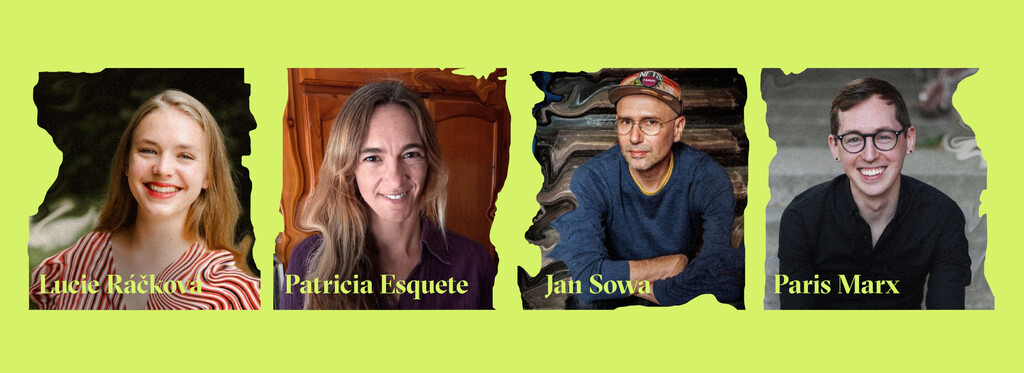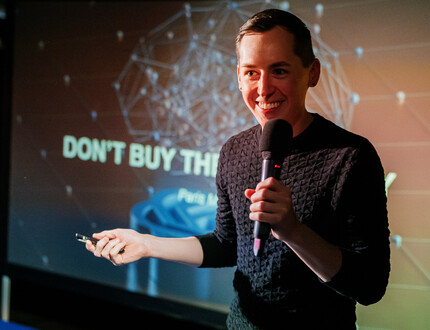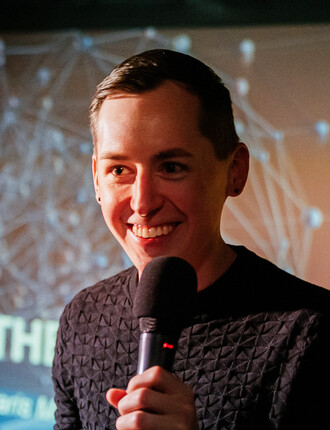How to ensure enough food for everyone? How to save the planet? What does food mean to us beyond meeting basic human needs? Together with the whole festival, this year we are thinking about food in the context of sustainability and sharing. In the forum, we will ask how we can take care of ourselves and our surroundings with food. We will show that local produce can be turned into treasure, and our speakers will share experiences of good regional practice. And when it comes to food, people can't stop talking - this year's forum will also be about cooking, smelling and tasting. Not only on stage at Jihava’s Horácké Theater, but also during the Inspiration Forum Lab workshop.
Where are the boundaries of the universe? What might life look like beyond Earth? How will data from space help us solve Earth's crises? We take a look into space research with anthropologist and stress researcher Lucie Ráčková. Her research has focused on prenatal stress and its connection to the psychological characteristics of offspring in adulthood. She has also studied stress in female university employees during the pandemic, polar explorers and women in Antarctica, and her interest in stress eventually led her to space. As a researcher, she took part in a mock space mission to Iceland and, as a so-called analogue astronaut, she then spent several days in conditions simulating a stay on Mars. These experiences led her to the decision to apply for the astronaut test, allowing Lucie to potentially become the first Czech woman in space. The forum will also feature the only Czech astronaut currently in space, fighter pilot Aleš Svoboda.
Who owns the water? How will it rearrange the world? What is life like under the surface? That's what marine biologist Patricia Esquete will tell us. At the University of Aveiro in Portugal, she studies the biodiversity of marine and freshwater ecosystems, from tropical rainforests to the deep-sea and it is these ecosystems that she will focus on at this year's forum. Patricia's research focuses on studying the ecological aspects of deep-sea mining, an industry that, while promising to provide the precious metals needed to develop "green" technologies, can have disastrous impacts on ocean ecosystems according to scientists.
When can communities replace the state? Do they unite or divide? What is the relationship between communities and institutions? And how do historical events influence their formation? Sociologist and cultural theorist Jan Sowa, among others, will share his views on this topic, as his research covers a range of topics from populism and cryptocurrencies to postcolonialism. At the forum, he will reflect on how the Central European experience can guide us in our search for an alternative to both free-market fundamentalism and the anti-liberal authoritarianism of today's populists.
How will AI transform humanity? What impact will it have on our work? Who actually understands it? Paris Marx, a critic of the technology industry, will present his perspective on the issue, which deals with technology and its relationship to the social problems of today. In his podcast Tech Won't Save Us, he gives a glimpse behind the scenes of the technology industry and challenges the established narratives about technology. In his 2022 book Road to Nowhere: What Silicon Valley Gets Wrong about the Future of Transportation, he calls for a rethinking of the role of technology solutions in building cities and transportation systems.








